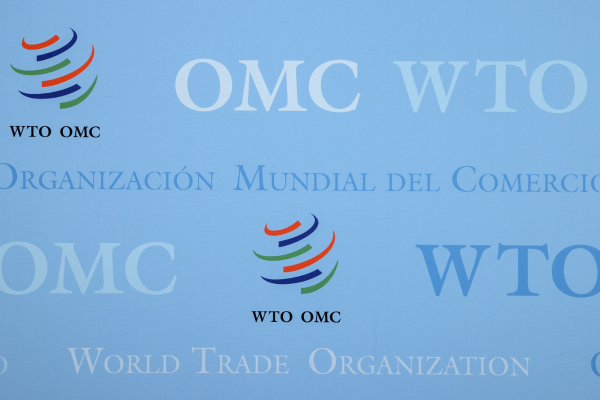Humility, examination, vulnerability: improving investment management

Alexandra Dobra-Kiel at Behave argues that there’s an underlying theme of cultural and structural inertia, with teams seemingly unable to innovate or take necessary risks to improve outcomes
When it comes to overseeing a portfolio of assets and maximising financial returns, few have better credentials than investment managers. They know when to roll the dice and when to play it safely - or at least, they used to.
The latest survey by AJ Bell and Morningstar indicates that they’ve lost their way, with less than a quarter of wealth managers capable of beating passive alternatives. In layman’s terms, these are funds that mimic an index (i.e. the FTSE 100) as opposed to following a defined investment method. Active investment requires bravery and better methods to keep client portfolios outperforming the market.
Diminished proficiency isn’t the only issue facing investment managers. The survey also saw them self-score their productivity as a six out of ten. This comes despite cries to integrate new technologies such as AI and machine learning, which help to enhance data sets and extract deeper insights for trades.
Although these innovations can enhance investment strategies and operational efficiency, revamping ways of working can put a strain on staff. And the shift doesn’t guarantee that they’re using them in the right way. Mercer’s research found that 54% of managers are already using AI within their investment strategy - but only a quarter use it to support decision-making.
So how can the industry get itself back on track and improve its relationship with evolving technology? Given the apparently underlying problems surrounding cultural and structural inertia - with teams seemingly unable to innovate or take necessary risks to improve outcomes - the best place to start is by developing a deeper behavioural understanding.
Nurturing a culture of psychological safety is key to unlocking new and improved behaviours. The onus is on you to create an environment that delicately balances comfort and discomfort, empowering employees to take risks, giving their viewpoints and suggesting new solutions and approaches.
Integrating psychological safety
Psychological safety is a management principle that has come to the fore in recent years, but very few understand what it really entails.
A recent Behave study, surveying over 200 senior decision makers in HR and management, revealed that only 16% truly understood the correct definition. But once accurately understood, the study showed that psychological safety was considered important for achieving engagement and productivity (88%).
It is best defined as “an environment where employees balance comfort and discomfort to take well-calibrated risks”. Note, it’s not about feeling secure or building the right culture, but is fundamentally about empowering managers to follow their instincts in taking calculated risks and not be punished for it.
And when it comes to passive management vs active investment, it is clear firms need to address the two-way lack of psychological safety, first within organisations and from client expectations — requiring the latter to have space to vocalise their expectations and managers to recognize and address their shortcomings, fostering a culture of continuous improvement.
The measurement challenge
Psychological safety uniquely enables the unlocking of the entrepreneurial, pro-active, inquisitive attributes that will encourage a fund manager to stretch and perform to their highest ability.
In 2012, Google embarked on a two year study to see what factors make certain teams successful compared to others. Named Project Aristotle, after careful observation and data collection, the psychological safety levels were seen as the main driver of success across teams.
Teams with the most positive results allowed open collaboration, equal contribution from members and greater emotional consideration for people’s opinions, garnering mutual respect for each others’ ideas. People needed to be free enough to share and experiment without fear of punishment.
But a big challenge is that management has difficulty in both measuring and nurturing psychological safety beyond surface level observation. It needs surveys, combined with ethnography – as well as observing the behaviour of employees at work through digital diaries.
Project Aristotle highlighted the difficulty in implementing psychological safety. There needs to be a framework and a level of data collection to implement the optimal environment for risk taking.
The steps to success
There are core principles to investigating and correcting psychological safety in the finance industry and beyond. It requires balancing forces of comfort and discomfort, and individuals stretching their comfort zones to drive both personal and company growth.
Encouraging collaboration among asset managers can break down silos and foster innovation. Individualised teams rarely make breakthroughs and working together unlocks different views and approaches.
It will be equally important for teams to admit that any single person doesn’t have all the answers or the key to the best processes - promoting humility will help acknowledge limitations and embrace better strategies. This combination enhances team cohesion and mutual respect, leading to more effective decision-making.
Imagine you’re a fresh-faced fund manager, or even been in the job a few years, nevertheless, opening up in meetings can be daunting, especially when surrounded by senior and more experienced colleagues and clients. Some may choose to wait their turn only for the higher ups to take up most of the time with their thoughts, or to never signal to others for their input. As with Google’s experiment with psychological safety, the teams with the lower productivity lacked a certain plurality when it came to ideas.
One of the key blockers of successful psychological safety is this closed off approach where hierarchical structures take away from the diversity of thought. Fostering wider participation will ensure that diverse voices contribute ideas, driving creativity and responsiveness; that younger colleagues may have just as much to say about an issue and their own unique approaches to problems.
Many people have a fear of conflict at work, but healthy conflict is necessary to have an iterative and productive strategy. It won’t be easy for inexperienced employees to challenge the status quo without the potential to be ostracised by older colleagues but through their different experiences they might pick up new ways of working that more experienced heads might not have considered. It is up to management to promote productive disagreement within teams to help refine ideas and not hold back on conflict.
But this also requires understanding limitations and encouraging vulnerability that builds trust and emotional intelligence, leading to stronger team dynamics and more honest discussions about challenges.
The path to growth
Psychological safety can sometimes be a misnomer - it is as much about discomfort as it is about comfort. The best performing teams challenge each other but also take a step back to listen carefully and evaluate all viewpoints. Healthy disagreement challenges complacency and collaborative problem solving safeguards from inefficiencies in strategy.
Client satisfaction also requires creating a psychologically safe space for two way dialogue - more openness helps investment managers better understand and meet client needs, especially during periods of economic downturns. With continued technological advancements, psychological safety will play a key part in examining and adopting new methods that unlock growth.
Ultimately, a culture where investment management teams take calibrated risks is one where customer experience improves and keeps firms at the top of their game.
Dr Alexandra Dobra-Kiel, Innovation and Strategy Director at Behave
Main image courtesy of iStockPhoto.com CHUNYIP WONG

Business Reporter Team
Most Viewed
Winston House, 3rd Floor, Units 306-309, 2-4 Dollis Park, London, N3 1HF
23-29 Hendon Lane, London, N3 1RT
020 8349 4363
© 2025, Lyonsdown Limited. Business Reporter® is a registered trademark of Lyonsdown Ltd. VAT registration number: 830519543





